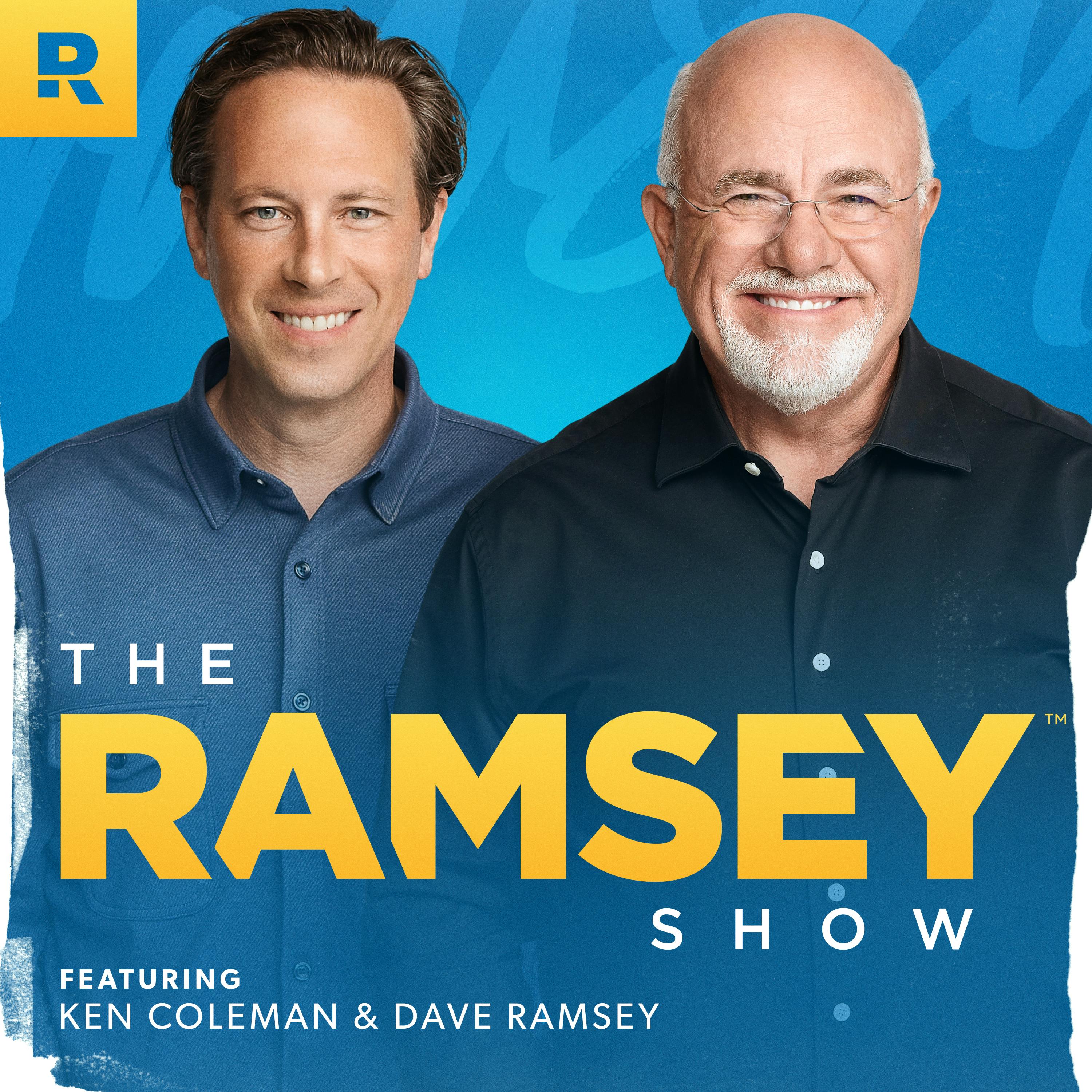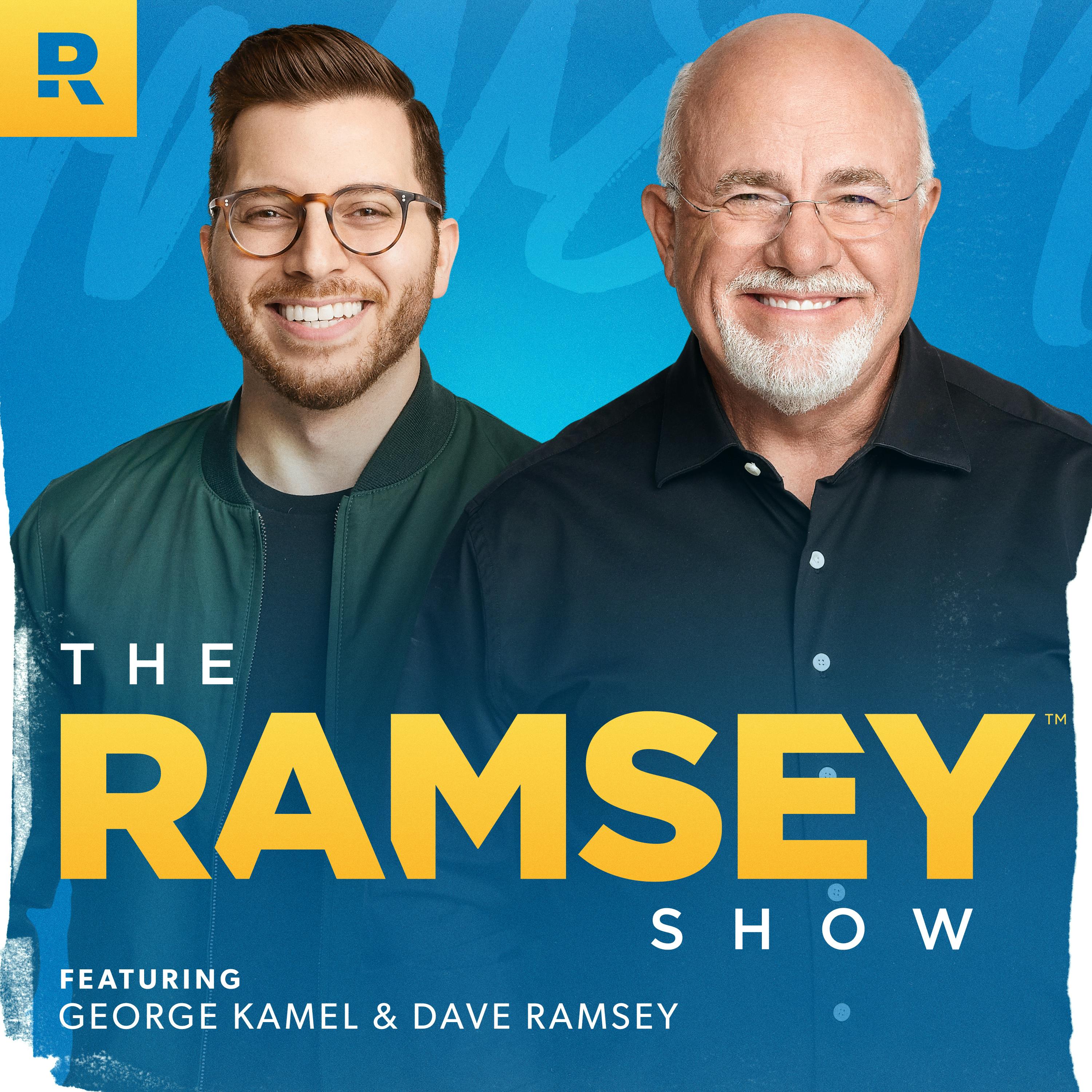Slow and Steady Beats Get Rich Quick
🤔 Think you’re good with money? Take our Money in America quiz!
George Kamel and Ken Coleman answer your questions and discuss:
"Should we keep a rental if we're losing money on it?"
"I just found out I'm pregnant, how can I financially prepare?"
"I took out a pension loan, should that be first in my debt snowball?"
"Should we pull from savings to pay off debt?"
"Should I buy a house with 0% down?"
"Should surplus investing go into a brokerage or a Roth IRA?"
"I lost my job a month ago. When should I sell my house?"
"Is my boyfriend's lack of interest in getting a job a red flag about getting married?"
"Should I buy a house with my parents when my wife is totally against the idea?"
"Should I pay off my mortgage with my brokerage account?"
"How do I balance living for today and saving for the future?"
"Can I invest in a side hustle while paying off debt?"
Next Steps:
✔️ Help us make the show better. Please take this short survey.
📞 Have a question for the show? Call 888-825-5225 weekdays from 2–5 p.m. ET or send us an email.
📱 Get episodes early in the free Ramsey Network app!
📈 Are you on track with the Baby Steps? Get a free personalized plan.
💵 Start your free budget today. Download the EveryDollar app!
🏠 Get organized and prepared to buy or sell a home.
🎟️ Two Weekends. One Life-Changing Experience. Get away with your spouse in Nashville.
👫 Check out our free Term Life Insurance Guide for helpful info and resources.
📘 Lead a Financial Peace University class
Connect With Our Sponsors:
Stop paying more and start shopping smarter at ALDI.
Get 10% off your first month of BetterHelp.
Go to Boost Mobile to switch today!
Learn more about Christian Healthcare Ministries.
Get started today with Churchill Mortgage.
Get 20% off when you join DeleteMe.
Go to FAIRWINDS Credit Union for an exclusive account bundle!
Find top health insurance plans at Health Trust Financial.
Use code RAMSEY to save 20% at Mama Bear Legal Forms.
Visit NetSuite today to learn more.
For more information, go to SimpliSafe.
Use promo code RAMSEY for 18% off at The Nokbox.
Get started with YRefy or call 844-2-RAMSEY.
Visit Zander Insurance for your free instant quote today!
Explore more from Ramsey Network:
💸 The Ramsey Show Highlights
🧠 The Dr. John Delony Show
🍸 Smart Money Happy Hour
💡 The Rachel Cruze Show
💰 George Kamel
🪑 Front Row Seat with Ken Coleman
📈 EntreLeadership
Ramsey Solutions Privacy Policy
Learn more about your ad choices. Visit megaphone.fm/adchoices
George Kamel and Ken Coleman answer your questions and discuss:
"Should we keep a rental if we're losing money on it?"
"I just found out I'm pregnant, how can I financially prepare?"
"I took out a pension loan, should that be first in my debt snowball?"
"Should we pull from savings to pay off debt?"
"Should I buy a house with 0% down?"
"Should surplus investing go into a brokerage or a Roth IRA?"
"I lost my job a month ago. When should I sell my house?"
"Is my boyfriend's lack of interest in getting a job a red flag about getting married?"
"Should I buy a house with my parents when my wife is totally against the idea?"
"Should I pay off my mortgage with my brokerage account?"
"How do I balance living for today and saving for the future?"
"Can I invest in a side hustle while paying off debt?"
Next Steps:
✔️ Help us make the show better. Please take this short survey.
📞 Have a question for the show? Call 888-825-5225 weekdays from 2–5 p.m. ET or send us an email.
📱 Get episodes early in the free Ramsey Network app!
📈 Are you on track with the Baby Steps? Get a free personalized plan.
💵 Start your free budget today. Download the EveryDollar app!
🏠 Get organized and prepared to buy or sell a home.
🎟️ Two Weekends. One Life-Changing Experience. Get away with your spouse in Nashville.
👫 Check out our free Term Life Insurance Guide for helpful info and resources.
📘 Lead a Financial Peace University class
Connect With Our Sponsors:
Stop paying more and start shopping smarter at ALDI.
Get 10% off your first month of BetterHelp.
Go to Boost Mobile to switch today!
Learn more about Christian Healthcare Ministries.
Get started today with Churchill Mortgage.
Get 20% off when you join DeleteMe.
Go to FAIRWINDS Credit Union for an exclusive account bundle!
Find top health insurance plans at Health Trust Financial.
Use code RAMSEY to save 20% at Mama Bear Legal Forms.
Visit NetSuite today to learn more.
For more information, go to SimpliSafe.
Use promo code RAMSEY for 18% off at The Nokbox.
Get started with YRefy or call 844-2-RAMSEY.
Visit Zander Insurance for your free instant quote today!
Explore more from Ramsey Network:
💸 The Ramsey Show Highlights
🧠 The Dr. John Delony Show
🍸 Smart Money Happy Hour
💡 The Rachel Cruze Show
💰 George Kamel
🪑 Front Row Seat with Ken Coleman
📈 EntreLeadership
Ramsey Solutions Privacy Policy
Learn more about your ad choices. Visit megaphone.fm/adchoices
Press play and read along
Transcript
Transcript is processing—check back soon.
The Ramsey Show — Slow and Steady Beats Get Rich Quick





